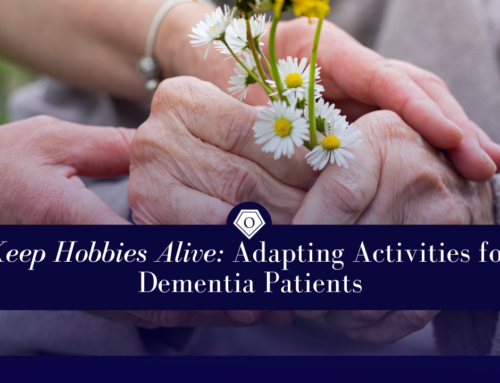Caring for a loved one with dementia can be challenging, especially during moments of stress and agitation. Finding effective ways to calm them can make a significant difference in both their well-being and your caregiving experience. Here are five proven calming techniques designed to help dementia patients feel safe, comforted, and at ease.
Gentle Breathing Exercises
One of the simplest yet most effective ways to calm a person with dementia is through breathing exercises. Deep, rhythmic breathing can help reduce anxiety and promote relaxation. Here’s a simple technique to try:
-
Sit Together: Find a quiet, comfortable spot.
-
Guide Their Breathing: Gently encourage them to take a deep breath in through the nose for a count of four, hold for a count of two, and exhale slowly through the mouth for a count of four.
-
Be Patient: Demonstrate and breathe with them, using a soft, calming voice.
If your loved one has difficulty following instructions, just model the breathing pattern yourself and encourage them to mirror your actions.
Soothing Sensory Items
Incorporating sensory stimulation can be incredibly calming for dementia patients. Items that engage their senses can provide comfort and help redirect their focus. Some ideas include:
-
Textured Blankets: Soft, plush blankets can provide a sense of security.
-
Fidget Toys or Busy Blankets: These help keep hands occupied and minds engaged.
-
Aromatherapy: Scents like lavender, chamomile, and vanilla have soothing effects.
Create a small “calm-down kit” with these items that you can easily access during stressful moments.
Familiar Music and Songs
Music is a powerful tool for reducing stress and evoking positive memories. Studies show that familiar tunes can help dementia patients feel more relaxed and connected.
-
Play Favorite Songs: Choose music from their younger years or songs they’ve always loved.
-
Encourage Participation: If they enjoy singing or tapping along, let them do so.
-
Volume and Tempo: Keep the volume low and select calming melodies.
Music can transport them to a comforting place, reducing stress and agitation almost instantly.
Establish Peaceful Routines
Dementia patients often feel more secure when routines are predictable. During stressful times, returning to a familiar routine can help ease anxiety.
-
Daily Structure: Keep activities and tasks consistent each day.
-
Calm Rituals: Consider incorporating a quiet afternoon tea or a short walk at the same time daily.
-
Positive Cues: Use visual and auditory signals to transition between activities, like playing a soft chime when it’s time for a meal.
A structured routine helps reduce confusion and gives them a sense of control.
Gentle Physical Touch
Sometimes, a simple, gentle touch can convey safety and reassurance. Holding hands, offering a warm hug, or lightly rubbing their shoulders can significantly reduce stress.
-
Respect Personal Space: Always approach from the front to avoid startling them.
-
Use Soft, Reassuring Words: Speak calmly and maintain eye contact.
-
Watch for Cues: If they seem uncomfortable, respect their boundaries and try another method.
Physical touch is a powerful way to convey love and support, especially during moments of anxiety.
Stress and agitation are common among dementia patients, but with the right techniques, you can help your loved one feel more at ease. Incorporating breathing exercises, sensory items, familiar music, peaceful routines, and gentle touch can make a big difference.
For more Alzheimer’s care tips and strategies for calming dementia patients, follow our blog or contact us for personalized support.
Dementia & Alzheimer’s Care
Onyx Home Care’s neurological disorder care is built around a system of support. This service includes skilled home care as well as a unique program that centers on the patient’s interests and stage of illness. Our goal is to see happy family members, patients and caregivers. Often times, caregivers feel remote. Our team includes each person in the home care process to provide inclusive care that helps the patient thrive.






